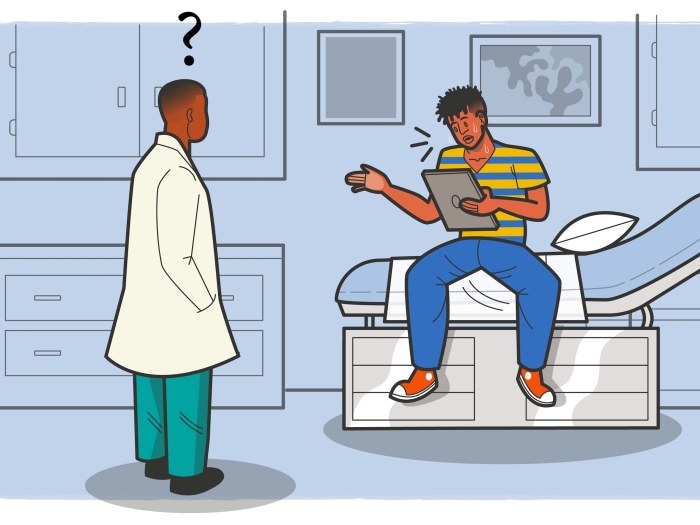1:52 PM
Author |
Learning how to be a doctor is a lot like learning how to bake. You read the book, learn the steps, try it out, and then you end up with cookies. But the best bakers (aka my grandma) will tell you that the real learning comes when the cookbook is taken away. It forces you to think about the individual ingredients and steps in a new way. And you start to appreciate how each individual step can make an impact on the final product. It can be frustrating, but once you grasp this new way of thinking you can make more than just cookies.
In medical school we spend our first year learning the basics: anatomy, physiology, pathophysiology, and numerous treatments for countless diseases. We also learn to apply this knowledge to clinical vignettes through our doctoring and chief-concern courses with the help of faculty members. All of this learning and practice is in preparation for the clinical clerkships when our book is taken away and replaced with a pair of scrubs.
Once we took our first steps into the clerkship year, we quickly learned that patients almost never present exactly how the book teaches us. This is especially true in surgery. While we were primed to recognize standard surgical pathology during our M1 year, decision-making in surgery remained a mystery to us. We have learned how to diagnose a patient with acute cholecystitis, but how can we determine if he is a safe and appropriate surgical candidate?
We thought it would have been helpful to begin learning these critical thinking skills earlier in our medical training. This is how the idea of 'Think Like a Surgeon' came to be. Our goal is to provide students with early exposure to surgery and give them tools for success when they are on their surgery clerkships. We wanted to create an interactive learning experience to help students build a mental framework for surgical decision making.
At Michigan Medical School you do not have to go further than an email to get connected with leadership to start making your idea a reality. We were connected to Maia Anderson, a PGY-4 Surgery Resident, who not only wanted to make our idea happen, but supported it with her time and knowledge to help improve it. We created the sessions together with Maia and Ryan Eton, another PGY-4 Surgery Resident, who selflessly offered their time to moderate the sessions. They also made sure we, Allyse and Quintin, ran the majority of the session while they provided the group with higher level knowledge as the session progressed.
We hold monthly sessions that are split into two groups: Pre-Clinical (M1) and Clinical (M2/3/4/MSTP) students. We split the sessions into pre-clinical and clinical because trainees are at different parts of the curriculum and therefore have different needs. Pre-clinical trainees take a deeper dive into the pathophysiology, while Clinical trainees go deeper into the decision-making and treatment process. In each session we include relevant anatomy, physiology, and imaging.
'Think Like a Surgeon' offers an informal, educational environment to interact and gain exposure to the field of surgery through discussion between surgery residents and interested medical students. We hope for trainees to feel inspired to consider surgery early on and, even if students are not planning for a career in surgery, we hope for them to gain useful skills and knowledge they can apply to their interests. For future sessions, we are looking for student volunteers who can design and lead the sessions with the support of our residents. Our first few sessions have received positive feedback from students and we look forward to many more!
University of Michigan Medical School
Want top health & research news weekly? Sign up for Health Lab’s newsletters today!





